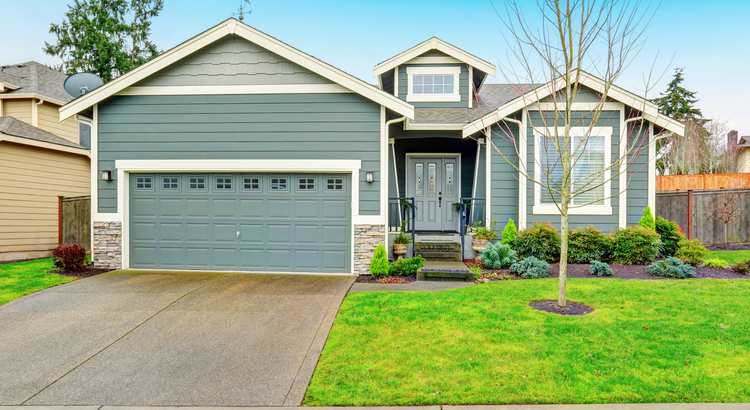Experts Project Home Prices Will Increase in 2024
Even though home prices are going up nationally, some people are still worried they might come down. In fact, a recent survey from Fannie Mae found that 24% of people think home prices will actually decline over the next 12 months. That means almost one out of every four people are dealing with that
3 Must-Do’s When Selling Your House in 2024
If one of the goals on your list is selling your house and making a move this year, you’re likely juggling a mix of excitement about what’s ahead and feeling a little sentimental about your current home.A great way to balance those emotions and make sure you’re confident in your decision is to keep
Key Terms Every Homebuyer Should Learn [INFOGRAPHIC]
Some HighlightsBuying a home is a big deal and can feel especially complicated if you don't know the terms used during the process.If you want to become a homeowner this year, it's a good idea to learn these key housing terms and understand how they relate to the current housing market. That will he
3 Key Factors Affecting Home Affordability
Over the past year, a lot of people have been talking about housing affordability and how tight it’s gotten. But just recently, there’s been a little bit of relief on that front. Mortgage rates have gone down since their most recent peak in October. But there’s more to being able to afford a home th
2 Reasons Why Today’s Mortgage Rate Trend Is Good for Sellers
If you’ve been holding off on selling your house to make a move because you felt mortgage rates were too high, their recent downward trend is exciting news for you. Mortgage rates have descended since last October when they hit 7.79%. In fact, they’ve been below 7% for over a month now (see graph be
Why You May Want To Seriously Consider a Newly Built Home
Are you putting off your plans to sell because you’re worried you won’t be able to find a home you like when you move? If so, it may be time to consider a newly built home and the benefits that come with one. Here’s why.Near-Record Percentage of New Home InventoryNewly built homes are becoming an in
Homeownership Is Still at the Heart of the American Dream
Buying a home is a powerful decision, and it remains at the heart of the American Dream. Unlike renting, owning a home means more than just having a place to live – it offers a sense of belonging, stability, and freedom. According to Nicole Bachaud, Senior Economist at Zillow:“The American Dream is
Home Prices Forecast To Climb over the Next 5 Years [INFOGRAPHIC]
Some HighlightsIf you’re worried about what’s next for home prices, know the HPES shows experts are projecting they’ll continue to rise at least through 2028.Based on that forecast, if you bought a $400,000 house this year, experts say it could gain over $72,000 in equity over the next five years. I
The Dramatic Impact of Homeownership on Net Worth
If you're trying to decide whether to rent or buy a home this year, here's a powerful insight that could give you the clarity and confidence you need to make your decision.Every three years, the Federal Reserve releases the Survey of Consumer Finances (SCF), which compares net worth for homeowners a
Avoid These Common Mistakes After Applying for a Mortgage
If you’re getting ready to buy a home, it’s exciting to jump a few steps ahead and think about moving in and making it your own. But before you get too far down the emotional path, there are some key things to keep in mind after you apply for your mortgage and before you close. Here’s a list of thin
Ways Your Home Equity Can Help You Reach Your Goals
If you’ve owned your house for at least a couple of years, there’s something you’re going to want to know more about – and that’s home equity. If you’re not familiar with that term, Freddie Mac defines it like this:“. . . your home’s equity is the difference between how much your home is worth and h
What Lower Mortgage Rates Mean for Your Purchasing Power
If you want to buy a home, it's important to know how mortgage rates impact what you can afford and how much you’ll pay each month. Fortunately, rates for 30-year fixed mortgages have come down significantly since the end of October and are currently under 7%, according to Freddie Mac (see graph bel
Achieving Your Homebuying Dreams in 2024 [INFOGRAPHIC]
Some HighlightsPlanning to buy a home in 2024? Here’s what to focus on.Improve your credit score, plan for your down payment, get pre-approved, and decide what’s most important to you.Partner with a trusted real estate agent so you have expert advice on how to achieve your homebuying goals this year
Why Pre-Approval Is Your Homebuying Game Changer
If you’re thinking about buying a home, pre-approval is a crucial part of the process you definitely don’t want to skip. So, before you start picturing yourself in your new living room or dining on your future all-season patio, be sure you’re working with a trusted lender to prioritize this essentia
Thinking About Buying a Home? Ask Yourself These Questions
If you’re thinking of buying a home this year, you’re probably paying closer attention than normal to the housing market. And you’re getting your information from a variety of channels: the news, social media, your real estate agent, conversations with friends and loved ones, the list goes on and on
Things To Consider If Your House Didn’t Sell
If your listing has expired and your house didn’t sell, it's completely normal to feel a mix of frustration and disappointment. Understandably, you're probably wondering what may have gone wrong. Here are three questions to think about as you figure out what to do next.Did You Limit Access to Your H
3 Keys To Hitting Your Homeownership Goals in 2024
If buying or selling a home is your goal for 2024, it’s important to understand today’s housing market, know your why, and work with industry experts to bring your homeownership vision for the new year into focus.Over the last year, the economy had a big impact on the housing market, and likely on y
The Benefits of Working With an Agent When You Sell Your House [INFOGRAPHIC]
Some HighlightsWhen it comes to selling your house, the expertise of a trusted real estate agent can make a big difference.They’ll explain what’s happening today, what that means for you, and how to price and market your house. They’re also skilled negotiators and well versed in the contracts and di
What You Need To Know About Saving for a Home in 2024
If you’re planning to buy a home, knowing what to budget for and how to save may sound intimidating – but it doesn’t have to be. One way to ease those concerns is to make sure you understand some of the costs you may encounter up front. And to do that, always turn to trusted real estate professional
Retiring Soon? Why Moving Might Be the Perfect Next Step
If you’re thinking about retirement or have already retired this year, it’s a good time to consider if your current house is still a good fit for the next chapter in your life.Fortunately, you may be in a better position to make a move than you realize. Here are a few things to think about as you de
Tim Reuss
Phone:+1(303) 601-9509



![Key Terms Every Homebuyer Should Learn [INFOGRAPHIC],KCM Crew](https://img.chime.me/image/fs/chimeblog/20240120/16/original_6fe58048-3353-467b-868e-2b96b83dc786.png)




![Home Prices Forecast To Climb over the Next 5 Years [INFOGRAPHIC],KCM Crew](https://img.chime.me/image/fs/chimeblog/20240113/16/original_4bc5175d-ccc4-44aa-943d-f1e2c2cacd76.png)




![Achieving Your Homebuying Dreams in 2024 [INFOGRAPHIC],KCM Crew](https://img.chime.me/image/fs/chimeblog/20240106/16/original_529ea5a3-094f-45ed-a6c0-c3b9c915f47e.png)




![The Benefits of Working With an Agent When You Sell Your House [INFOGRAPHIC],KCM Crew](https://img.chime.me/image/fs/chimeblog/20231230/16/original_117a13f3-5e7c-4c3c-b262-67ab86a75aae.png)

